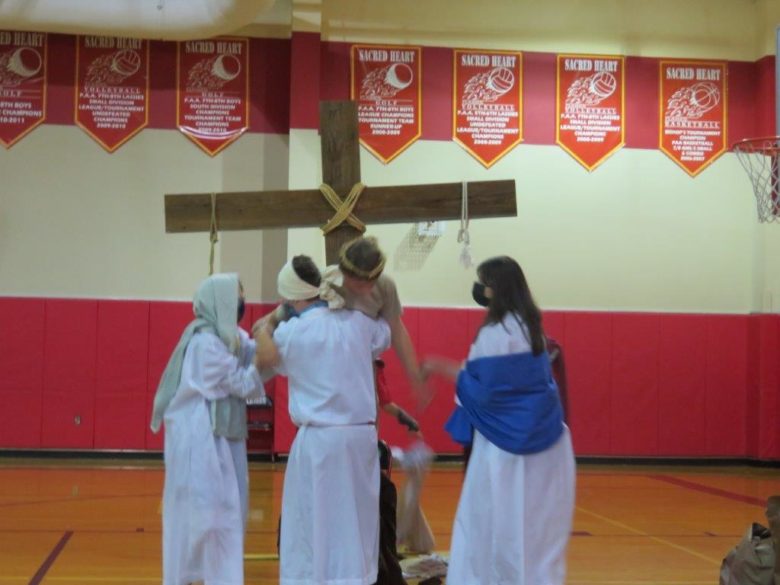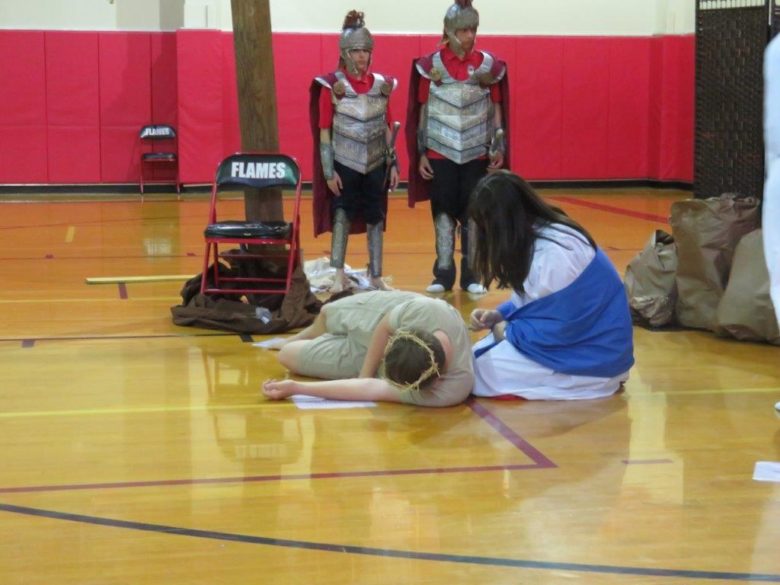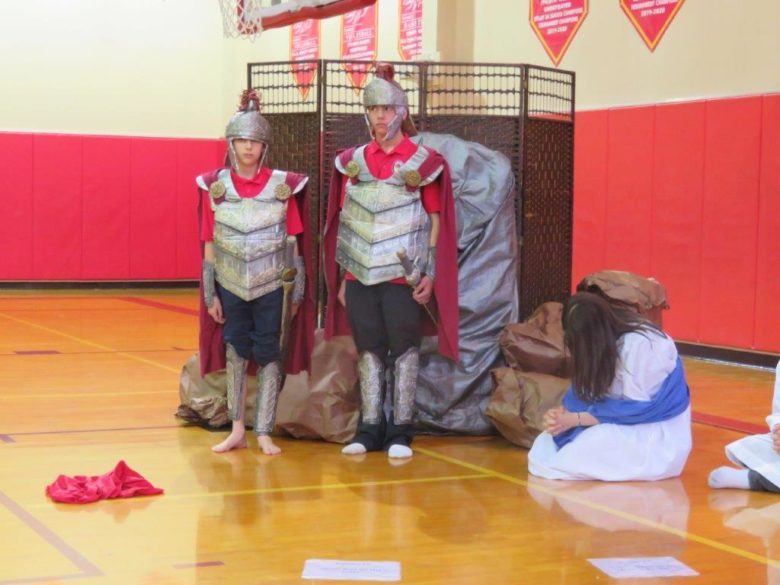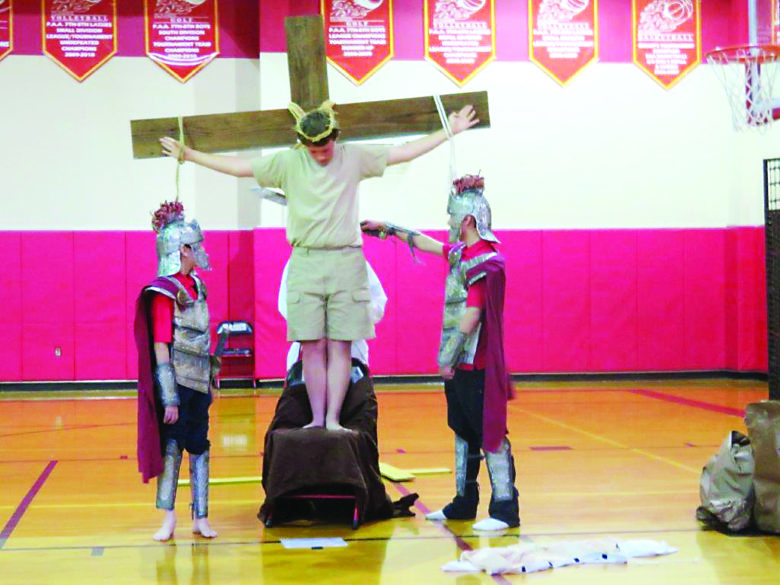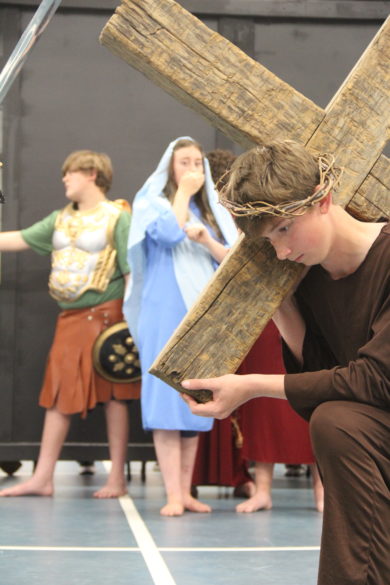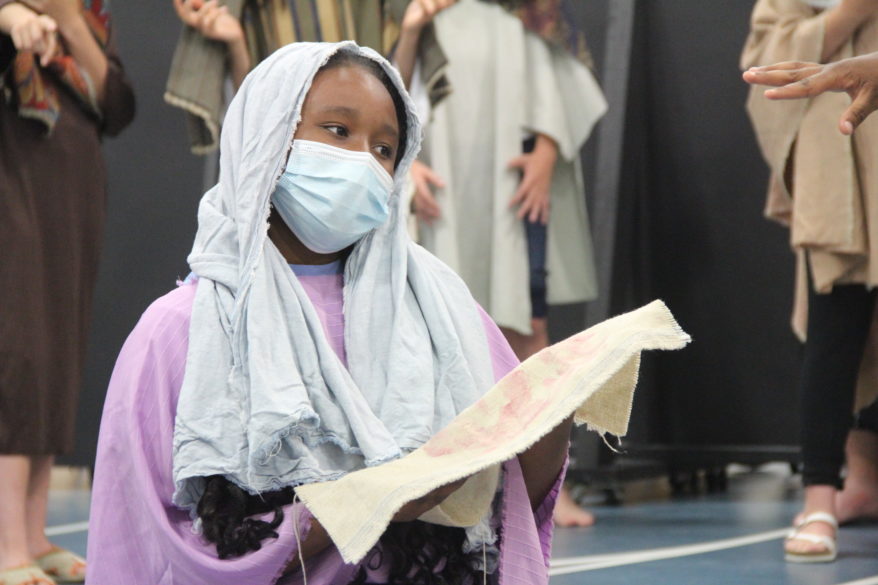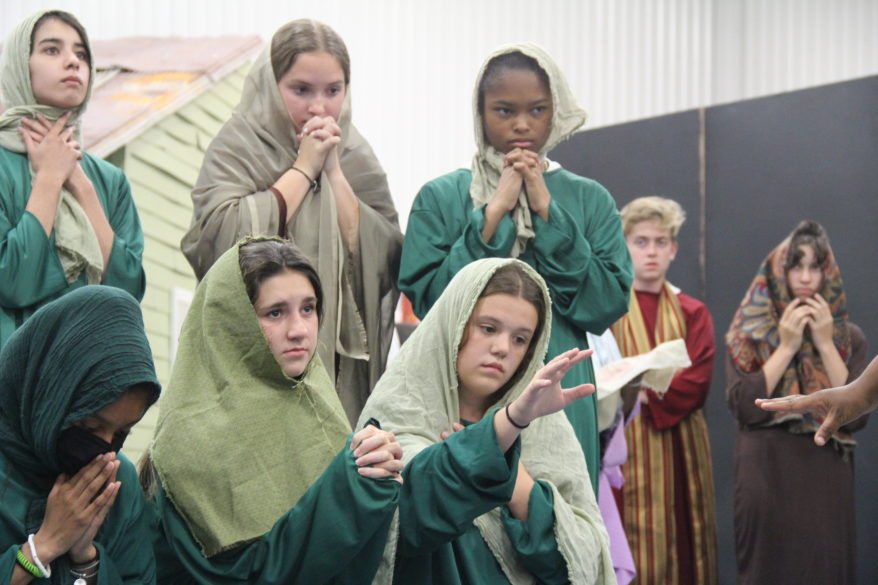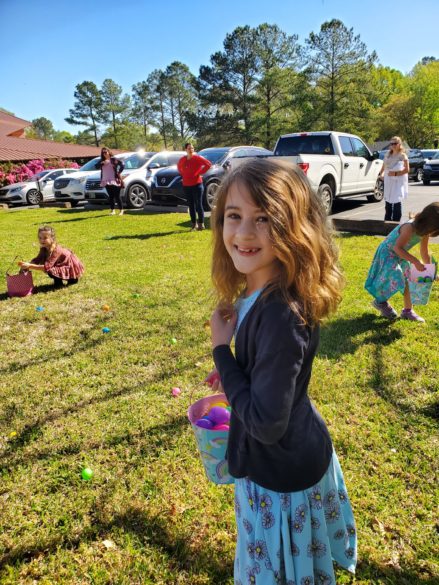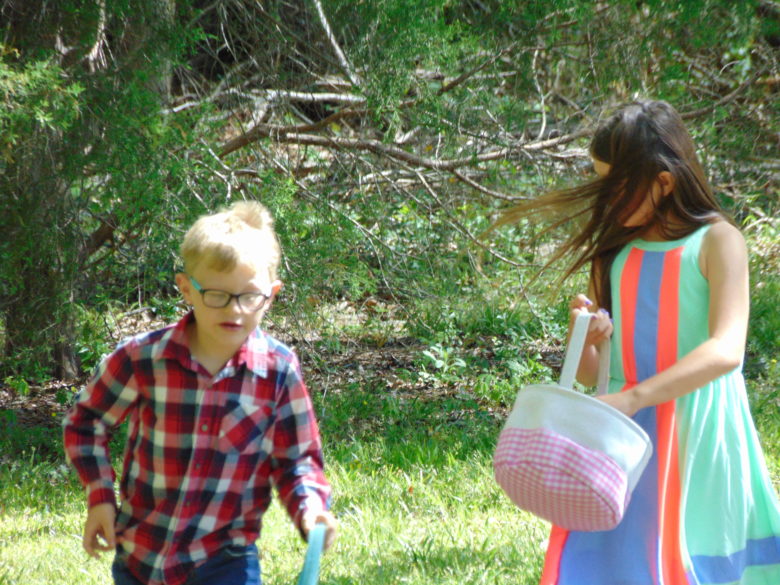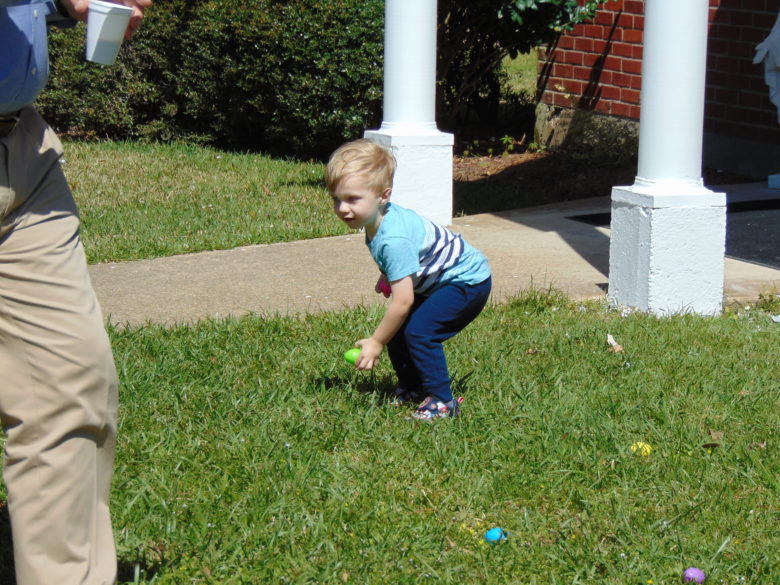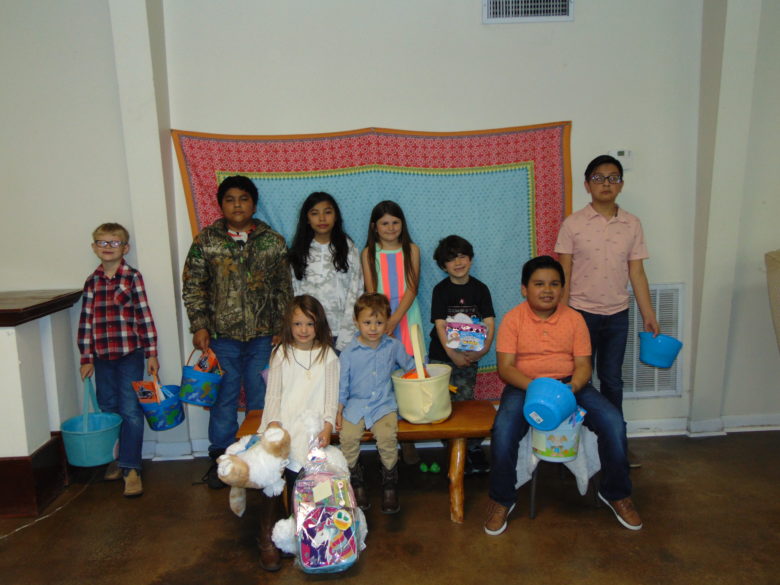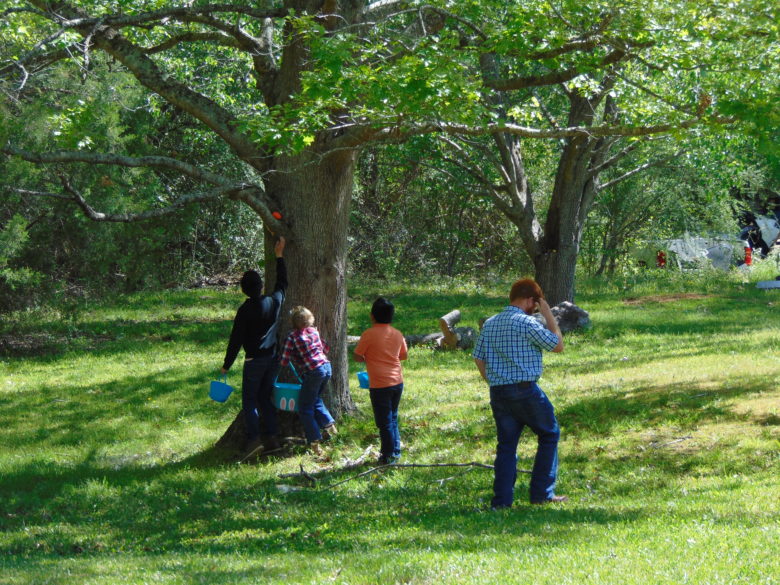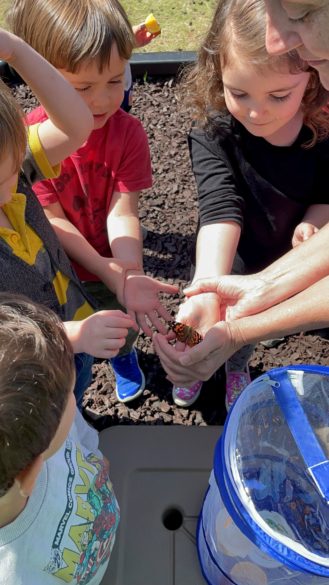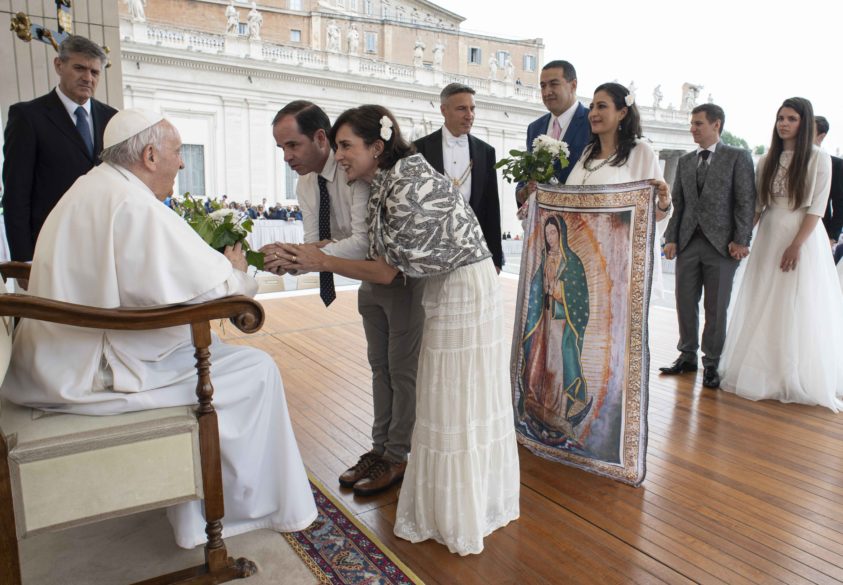
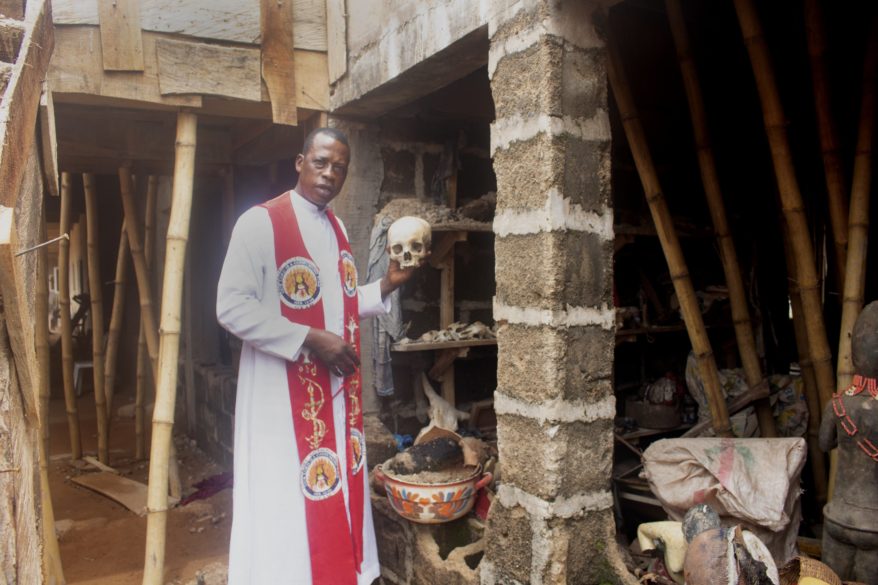
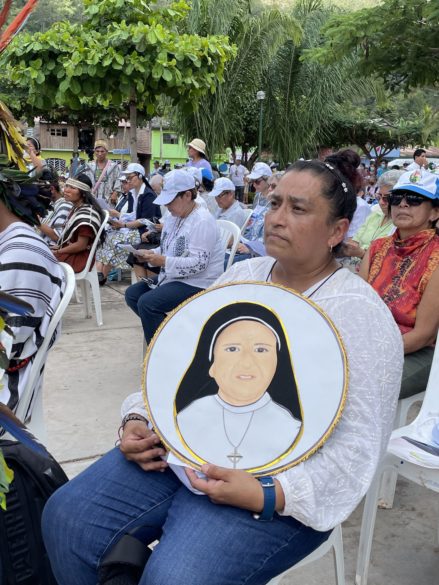





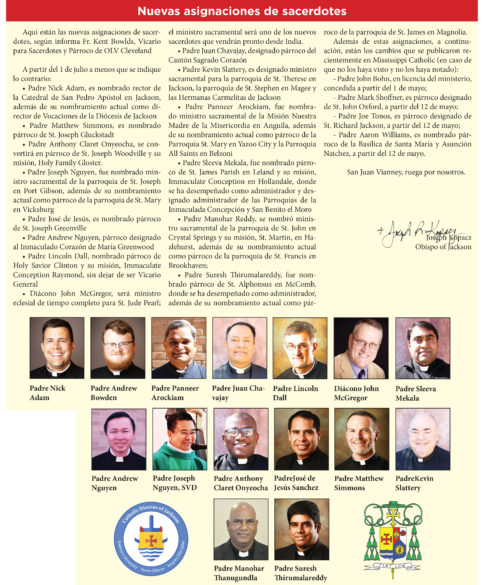
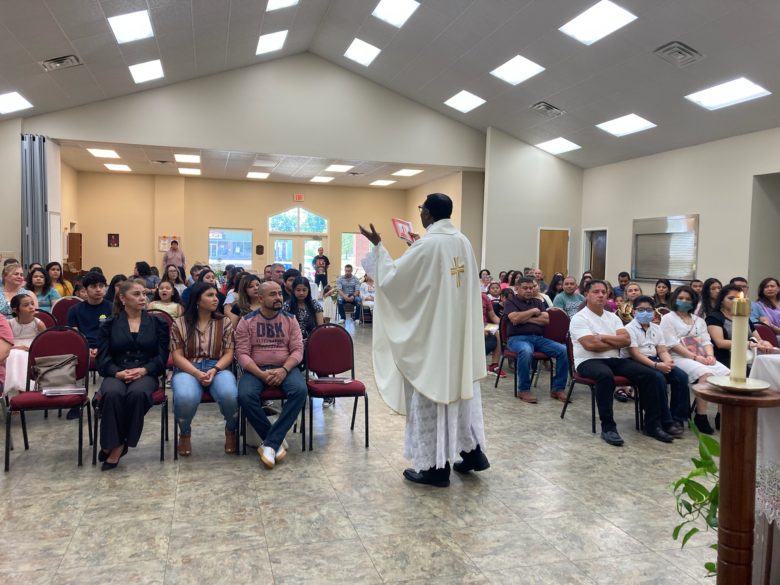
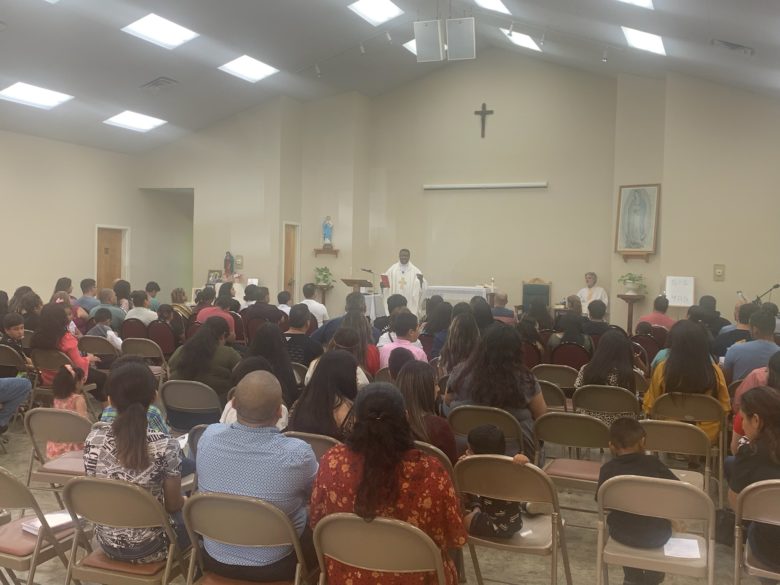
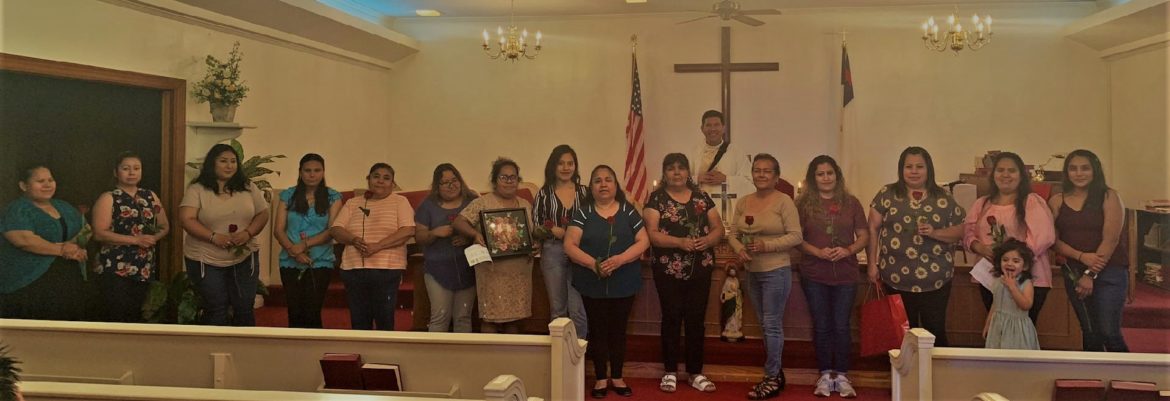
La organización Birthright (Derecho a Nacer) celebró el 8 de mayo, Dia de las Madres, con los parroquianos y el Padre Clem Oya de la Iglesia Católica de la Sagrada Familia. Allí regalaron algunas de las 100 bolsas de regalo para bebés destinadas para futuras madres. En su página de Facebook hicieron un llamado a todas las madres expectantes y en situación de bajos recursos.
La iniciativa se realizó para celebrar, honrar y ayudar a las mamás necesitadas. La organización Birthright (Derecho a Nacer) tiene su oficina en Ridgeland para ayudar semanalmente a las mujeres embarazadas en busca de ayuda. Para hacer una cita debe llamar al 601-371-7711
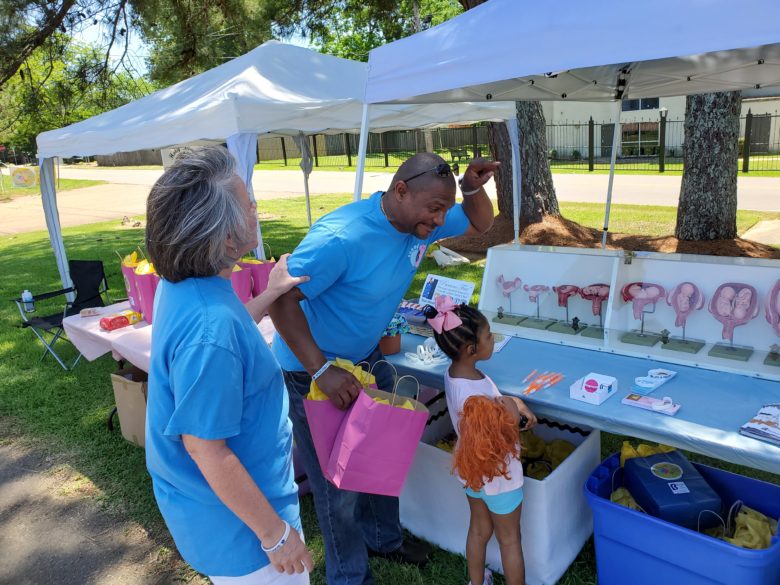
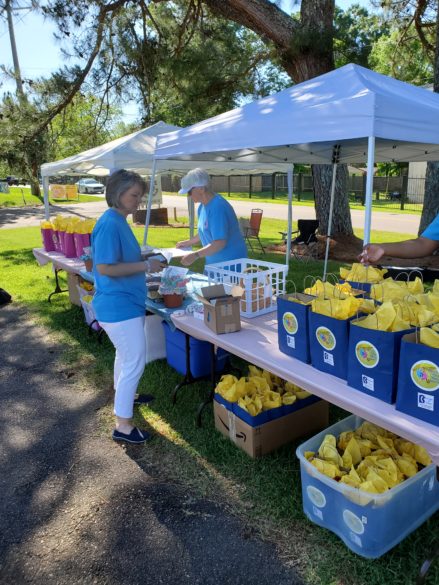
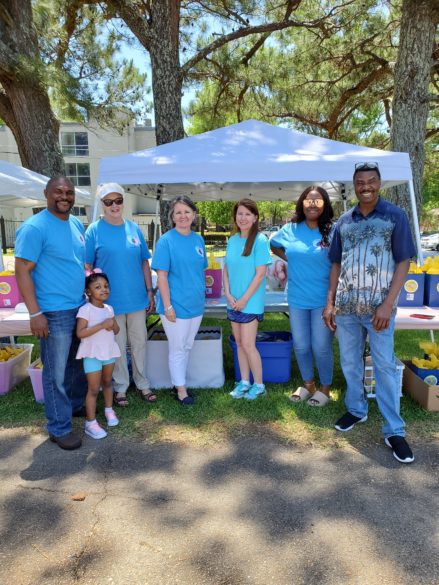
Por Barbara Fraser
LIMA, Perú (CNS) — En medio de los conflictos entre las empresas mineras y las comunidades en América Latina, los católicos deben apoyar a las personas cuyas vidas y medios de subsistencia están amenazados por la contaminación y las violaciones de los derechos humanos, expresaron trabajadores de la iglesia.
Las comunidades afectadas por la minería — y las personas de la iglesia que trabajan con esas comunidades — obtienen fortaleza de las espiritualidades que se centran en proteger lo que el papa Francisco llama “nuestra casa común”, según dicen miembros de la Red de Iglesias y Minería, quienes se reunieron aquí del 24 al 28 de abril.
Dicho encuentro reunió a 40 personas de Argentina, Bolivia, Brasil, Chile, Colombia, Ecuador, Guatemala, y Perú, además de Francia, Alemania, y Suiza.
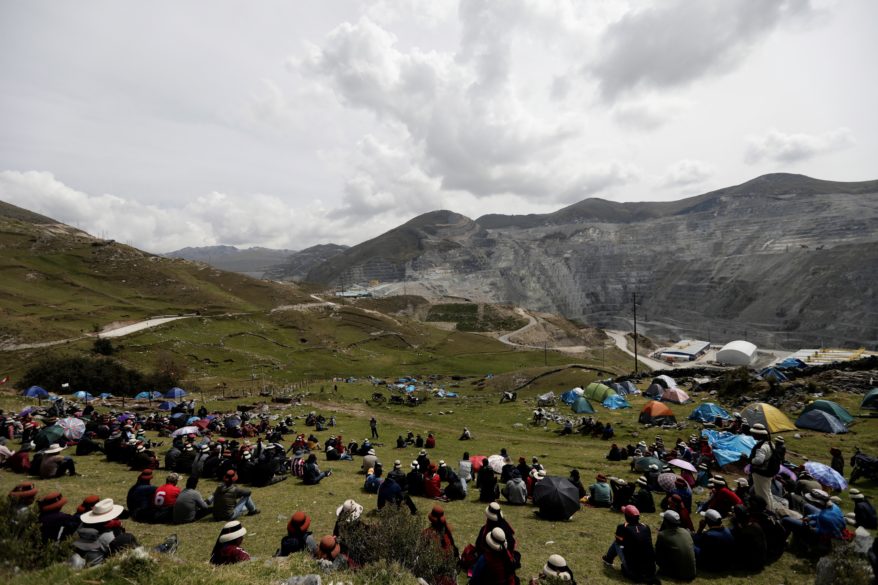
Cuando los países latinoamericanos declararon cuarentena durante la pandemia de coronavirus, las minas en muchos países continuaron operando, lo que a menudo exacerbó los conflictos con las comunidades locales, señalaron los miembros de la red en una presentación pública el 27 de abril.
Y es probable que tanto la guerra en Ucrania como la demanda de minerales para nuevas tecnologías energéticas, como la solar y la eólica, aumenten la presión para la minería en el futuro, lo que generará mayores tensiones con las comunidades, manifestó el padre Dario Bossi, provincial de los Misioneros Combonianos en Brasil y coordinador de la red.
“¿Cuánto más esto va a avanzar así, o peor? Hemos visto que en tiempos de pandemia y de guerra, en lugar de disminuir, (la minería) se expande. El aumento de conflictos y muertes es precisamente porque esto está llegando al límite”, acotó, y agregó que los conflictos son “una señal de que el tiempo se está acabando”.
Los conflictos toman diversas formas en la región.
En Brasil, donde el colapso de las represas de relaves en 2015 y 2019 — en las minas propiedad de la minera Vale — causó destrucción ambiental y mató a cientos de personas, las víctimas aún esperan compensaciones y las comunidades se sienten excluidas de las negociaciones, indicó el hermano franciscano Rodrigo Péret.
Mientras tanto, empresas más pequeñas continúan explorando nuevas áreas, lo que a menudo genera división dentro de las comunidades, dijo.
En la provincia de Chubut, en el sur de Argentina, los planes de Anglo American PLC, con sede en Gran Bretaña, para explotar uno de los depósitos de plata más grandes del mundo continúan, a pesar de la oposición de las comunidades locales, indicó Claudia Huircan, quien coordina el programa de justicia, paz, e integridad de la creación de los Misioneros Claretianos en Argentina, Chile, Uruguay, y Paraguay.
Esta exploración afecta sitios considerados sagrados por las comunidades indígenas mapuches, acotó, y a “defensores de la casa común y de la Madre Tierra” que se oponen al proyecto se los tilda de delincuentes.
Esa es una queja común en las comunidades afectadas por las industrias extractivas en la que se ha convertido la región más mortífera para los defensores del medio ambiente y los territorios comunitarios, según reporta el grupo ambientalista Global Witness. Tres cuartas partes de los 227 asesinatos que registró la organización en 2021 se cometieron en América Latina.
América Latina juega un papel clave en la provisión de minerales al mundo, dijo César Padilla del Observatorio de Conflictos Mineros de América Latina, con sede en Chile, a través de una conexión virtual durante la presentación del 27 de abril. Chile y Perú lideran la región, especialmente en producción de cobre, pero también son importantes otros países, como Bolivia, gran productor del litio que se usa en las baterías de los vehículos eléctricos.
“Somos víctimas de esta abundancia”, expresó Padilla. “El problema más grave es que la abundancia conduce a una narrativa que iguala industrias extractivas con riqueza y bienestar”.
Si bien la minería ha aumentado los ingresos generales en muchos países de América Latina — lo que ha contribuido a reducir las tasas de pobreza nacional — los beneficios no se han extendido a muchas de las comunidades más cercanas a minas en lugares como la Cordillera de los Andes.
En Cajamarca, la zona de Perú que alberga una de las minas de oro más ricas de la región, dos de cada cinco personas viven en la pobreza, según cifras oficiales de 2020. En Huancavelica, centro minero desde la época colonial, la cifra es cercana a uno de cada dos.
Prácticamente todos los nuevos proyectos mineros en la región están acompañados de conflictos, dijo Padilla, ya que los gobiernos otorgan concesiones a las empresas en áreas que incluyen comunidades, lo que genera protestas seguidas de reprimendas por parte de las fuerzas de seguridad.
Los gobiernos continúan enfocándose en la extracción de recursos naturales, que sigue siendo la principal fuente de ingresos para muchos países latinoamericanos, en lugar de dar prioridad a garantizar beneficios para las comunidades, agregó.
Tal extractivismo es un esfuerzo por “convertir la naturaleza en dinero”, dijo el padre Bossi. “Lo que necesitamos es otro tipo de conversión”.
Las comunidades están pidiendo a las iglesias que sean aliadas y los obispos católicos de América Latina han dicho que la evangelización implica el cuidado de la creación, dijo el padre Bossi. Aunque a menudo se le pide a la iglesia que sea un “conciliador” en los conflictos, ese no es su papel, agregó. En cambio, debe ponerse del lado de las víctimas en situaciones injustas.
Los católicos en Estados Unidos pueden ayudar en ese esfuerzo apoyando políticas que protegen a las comunidades indígenas y otras comunidades tradicionales en lugares como la cuenca del Amazonas y boicoteando los productos de empresas cuyas prácticas resultan en daños ambientales o violaciones de los derechos humanos, expresó el Padre Bossi a Catholic News Service.
Destacó “la urgencia de levantar una voz desde afuera, por tantos casos de criminalización, muerte, y silenciamiento de personas que defienden sus territorios. Necesitamos la indignación internacional por lo que está pasando en América Latina. Eso ha funcionado en muchos casos. Pidan a los católicos que se unan a nosotros para hablar”.
Por Rhina Guidos
WASHINGTON (CNS) — Los funcionarios de la administración de Joe Biden emitieron una declaración contra actos violentos el 9 de mayo, después de protestas frente a las casas de dos jueces de la Corte Suprema en el área de Washington, así como vandalismo y una serie de disturbios dirigidos a lugares donde se encuentran organizaciones que se oponen al aborto. Algunos de ellos incluyen iglesias católicas.
Etiquetando la cuenta oficial de Twitter del presidente de Estados Unidos, @POTUS, la secretaria de prensa de la Casa Blanca, Jen Psaki, manifestó que el presidente Joe Biden “cree firmemente en el derecho constitucional a protestar”.
“Sin embargo, eso nunca debería incluir violencia, amenazas, o vandalismo. Los jueces desempeñan una función increíblemente importante en nuestra sociedad y deben poder hacer su trabajo sin preocuparse por su seguridad personal”, tuiteó.
La declaración se produjo después de que agencias de noticias informaran sobre protestas frente a la casa del juez Brett Kavanaugh en Chevy Chase, Maryland, y la casa cercana del presidente del Tribunal Supremo, John Roberts. Otros dijeron que otro juez y su familia tuvieron que ser llevados a un lugar no revelado debido a amenazas, pero estos rumores resultaron ser infundados.
Después de que el sitio de noticias en línea Politico publicara un informe a fines del 2 de mayo sobre un borrador de opinión filtrado que indica que la mayoría de los jueces de la Corte Suprema parecen dispuestos a revocar Roe v. Wade — la decisión que legalizó el aborto — los que se oponen a que se revoque han protestado. El vandalismo que muestra descontento con el fallo potencial también parece estar en aumento.
El periódico The New York Times informó el 7 de mayo que parte de la pared de la sede de Wisconsin Family Action, en Madison, fue incendiada, dejando un grafiti que decía: “Si los abortos no son seguros, ustedes tampoco”.
En una declaración del 9 de mayo, el obispo de Madison, Donald J. Hying, calificó el vandalismo como “un acto descarado de violencia, que todos los ciudadanos deberían condenar, como un ataque al respeto y la preocupación que nos debemos unos a otros en la búsqueda del bien común”.
Funcionarios de la Oficina de Libertad Religiosa de la Conferencia de Obispos Católicos de Estados Unidos indicaron que documentaron nueve incidentes similares el fin de semana posterior a la filtración, que se extendieron desde Nueva York hasta Los Ángeles.
La mayoría fueron interrupciones o destrucción de propiedad como el incidente reportado por The Denver Channel en Colorado, una filial de ABC, donde el personal de la Iglesia del Sagrado Corazón de María, en Boulder, tuvo que eliminar grafiti, pintura, y vidrios rotos durante el fin de semana del Día de la Madre.
Aunque el borrador filtrado no es definitivo, el presidente del tribunal, Roberts, confirmó su autenticidad y pidió una investigación. El borrador, según el informe de Politico, muestra la alineación de cinco jueces en contra de Roe v. Wade, lo suficiente como para anularlo. La decisión final del tribunal podría anunciarse en los próximos dos meses.
Las autoridades de Washington, cansadas después de lo ocurrido durante los ataques del 6 de enero de 2021 en el cercano Capitolio de Estados Unidos, han erigido cercas altas y difíciles de escalar alrededor de la Corte Suprema, donde se han producidos algunos conflictos y donde crecen las tensiones entre grupos que no están de acuerdo.
Por Tom Tracy
WESTON, Fla. (CNS) – Cientos de personas, incluyendo muchos venezolanos que viven en Estados Unidos, llegaron a este suburbio de Fort Lauderdale el 1 de mayo para saludar al cardenal de Caracas, Venezuela, y para ver las reliquias del beato José Gregorio Hernández, conocido cariñosamente como el “doctor de los pobres”, a quien el papa Francisco beatificó en 2021.
El cardenal Baltazar Porras, de Mérida, celebró la misa dominical para los feligreses de la iglesia católica de Santa Catalina Drexel, al oeste de Fort Lauderdale. Trajo consigo las reliquias del beato José Gregorio que fueron colocadas para su veneración al frente de la iglesia.
El beato José Gregorio, nacido en 1864, estudió medicina en Europa y ejerció como médico en Caracas, donde a menudo visitaba a los pacientes enfermos sin cobrarles.
Su generosidad con los venezolanos le valió el apodo de “el médico de los pobres”.
Pero en 1919, luego de recoger una medicina para un paciente en una farmacia, el beato José Gregorio fue atropellado por un auto y murió.
Desde entonces, los venezolanos siguen siendo devotos del piadoso médico y atribuyen las curaciones a su intercesión. Es el primer laico venezolano en ser beatificado.
Los años de lucha y agitación política en Venezuela han provocado el éxodo de cientos de miles de venezolanos y el rápido crecimiento de las comunidades de exiliados en Florida y otros lugares de Estados Unidos y América Latina.
Según la información de referencia distribuida por el personal del cardenal, más de un millón de venezolanos han buscado refugio fuera de su patria y 5 millones se han establecido en otros países de América Latina y el Caribe.
El censo estadounidense de 2020 contabilizó 500.000 venezolanos viviendo en EE.UU., con el mayor número de ellos en Florida (más de 273.000), Texas (75.000), Nueva York y Georgia (ambos con unos 23.000) y California (20.000).
La visita del cardenal Porras a Estados Unidos comenzó el 23 de abril en Nueva York; viajó a Washington y Boston antes de llegar al sur de Florida.
“Cuando anunciamos que el cardenal Baltazar vendría, la gente se emocionó, porque es un hombre que habla de derechos y libertades. Siempre fue un hombre que cuida de su pueblo”, dijo el padre Yonhatan Londoño, vicario parroquial de la Iglesia Católica Santa Catalina Drexel y nativo de Colombia. “Es un pastor que quiso venir a saludar a todo su pueblo”.
“Una de sus peticiones es que quiere saludar a todo el mundo y conocer y bendecir a todos con las reliquias”, dijo el padre Londoño a “The Florida Catholic”, periódico de la Arquidiócesis de Miami. “Hay mucha felicidad aquí hoy”.
La gente del sur de la Florida no ha perdido la esperanza de que se produzca un giro en la agitación económica y política de Venezuela, añadió el sacerdote.
“Vienen todos los días a rezar el rosario por la libertad de Venezuela y hacen muchas cosas en la iglesia como recolectar artículos para enviar a Venezuela para ayudar a la gente de allá. Ambas comunidades, la gente en Venezuela y los del exilio, son una sola. Se apoyan mutuamente, se ayudan, se quieren”, dijo el padre Londoño.
Carlota Blanco, que recauda fondos para la Iglesia y para proyectos de caridad en Venezuela, formaba parte de la comitiva que viajaba con el cardenal y las reliquias.
Blanco también está ayudando a la Iglesia a promover e investigar la causa de santidad del beato José Gregorio.
El papa Francisco firmó un decreto en junio pasado aprobando un milagro que se le atribuye, allanando así el camino para su beatificación.
El respectivo milagro fue la curación de Yaxury Solórzano Ortega, una niña de 10 años que recibió un disparo en la cabeza por parte de unos ladrones que intentaban robar a su padre, según la conferencia episcopal venezolana.
Durante la operación, la madre de la niña le rezó al beato José Gregorio. Dijo que sintió una mano en su hombro y escuchó una voz que le decía: “Quédate tranquila, todo saldrá bien”.
Los médicos dijeron inicialmente que Solórzano quedaría discapacitada, y que incluso perdería la capacidad de hablar y ver, si es que sobrevivía a la operación.
Sin embargo, se recuperó completamente 20 días después de la operación.
Una comisión médica de la Congregación del Vaticano para las Causas de los Santos confirmó en enero de 2020 que no había ninguna explicación médica para su curación.
“Estamos aquí para analizar un posible nuevo milagro y viajar con un mensaje de paz y servicio a la gente”, dijo Blanco, señalando que el posible milagro asociado al beato José Gregorio está siendo investigado en Miami.
Después de la misa en Weston, el cardenal Porras viajó una hora hacia el sur para visitar a la comunidad católica en la iglesia de Nuestra Señora de Guadalupe en Doral, no lejos del aeropuerto de Miami. Esa parroquia es considerada el mayor hogar espiritual de los migrantes venezolanos en Florida.
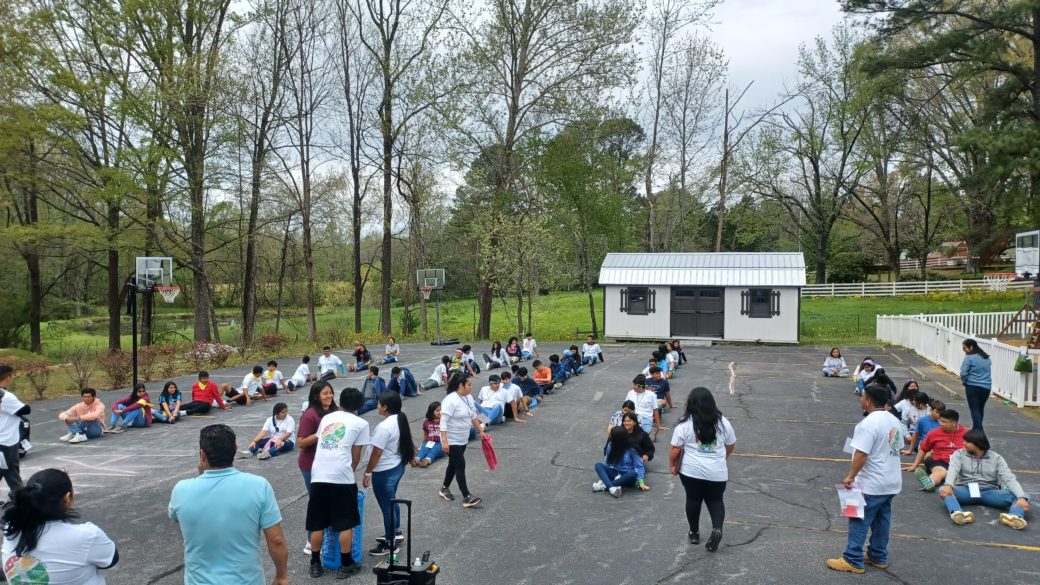
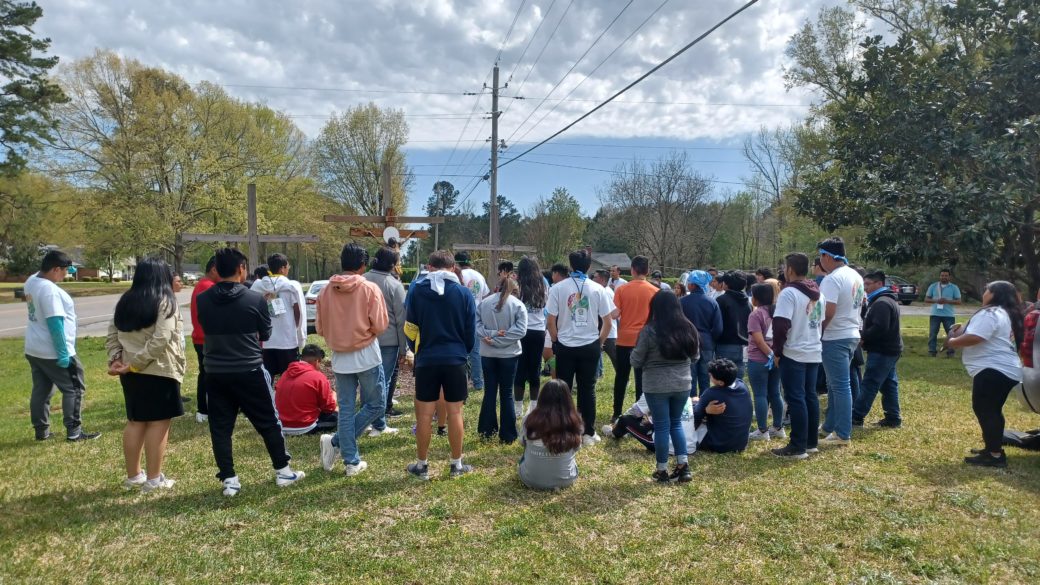
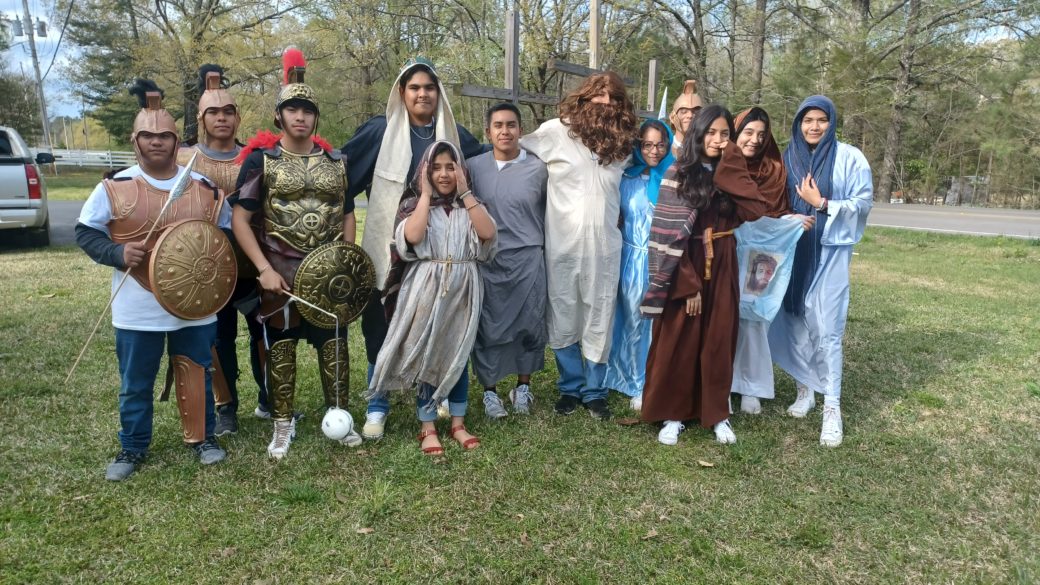
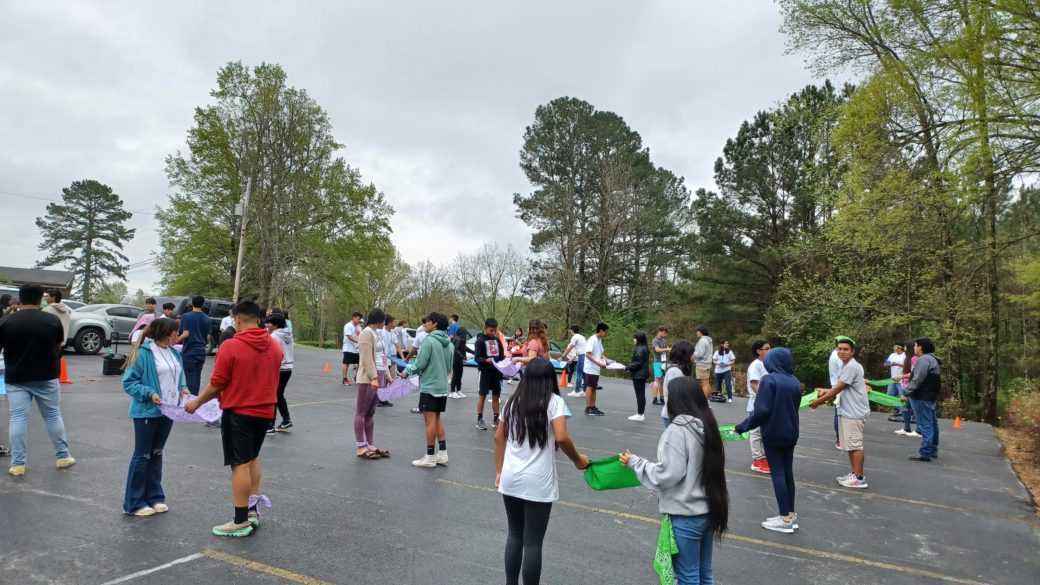
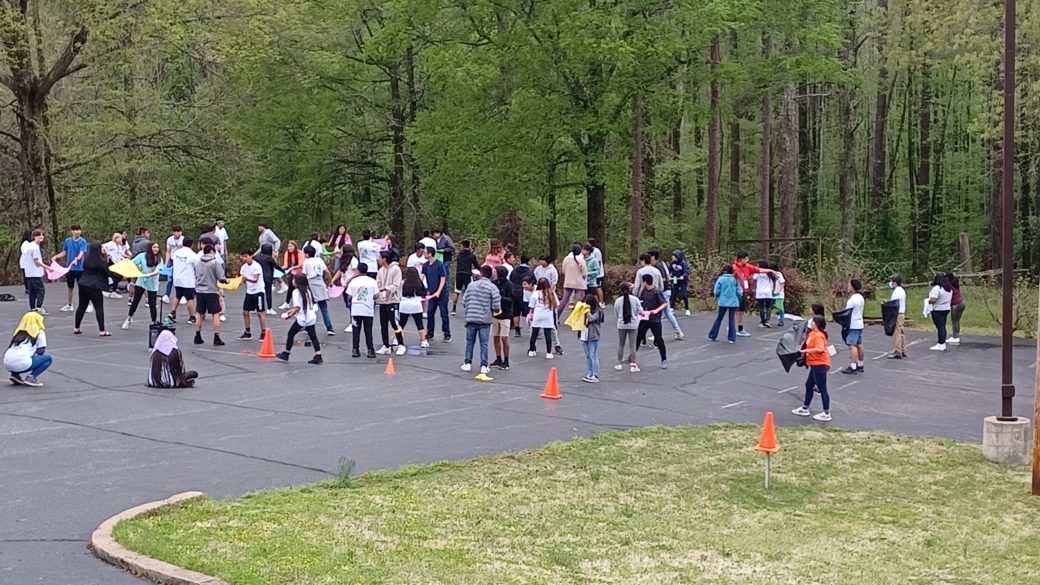
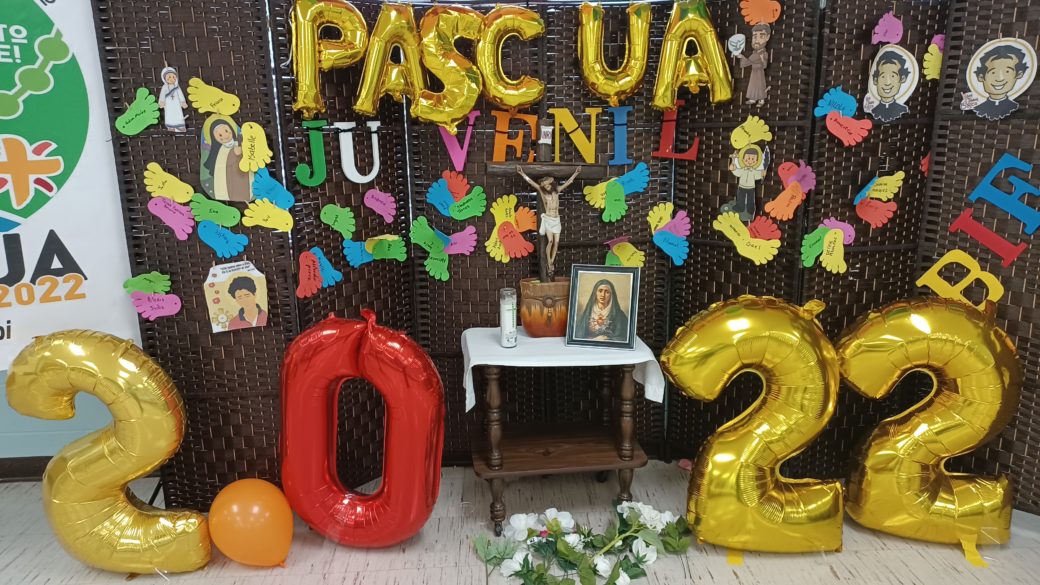
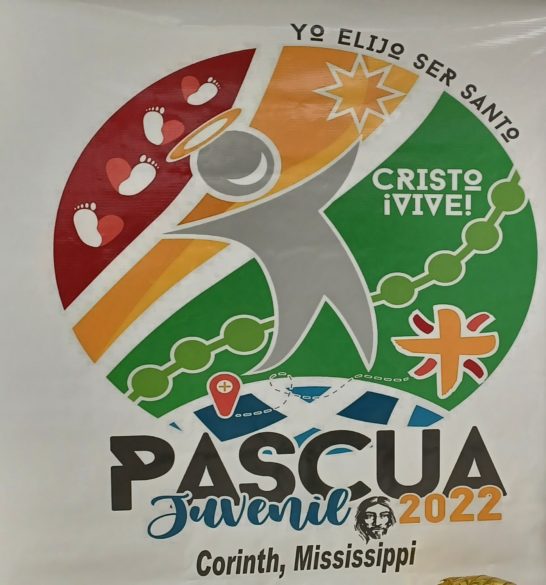
By Joanna Puddister King and Berta Mexidor
JACKSON – Catholics around the diocese shared their hopes for the church with Bishop Joseph Kopacz and members of the Synod Advisory Council at regional listening sessions held around the diocese over the past five weeks.
A total of ten sessions were held from March 21 through April 19, with two sessions delayed due to bouts of severe weather around the state. These regional sessions were the next step after parishes across the diocese conducted individual listening sessions to hear from people who fill the pews and those who no longer feel connected to the church. From the individual sessions the Synod Advisory Council reviewed every submission from each parish that participated and identified core issues on the minds of those across the diocese.
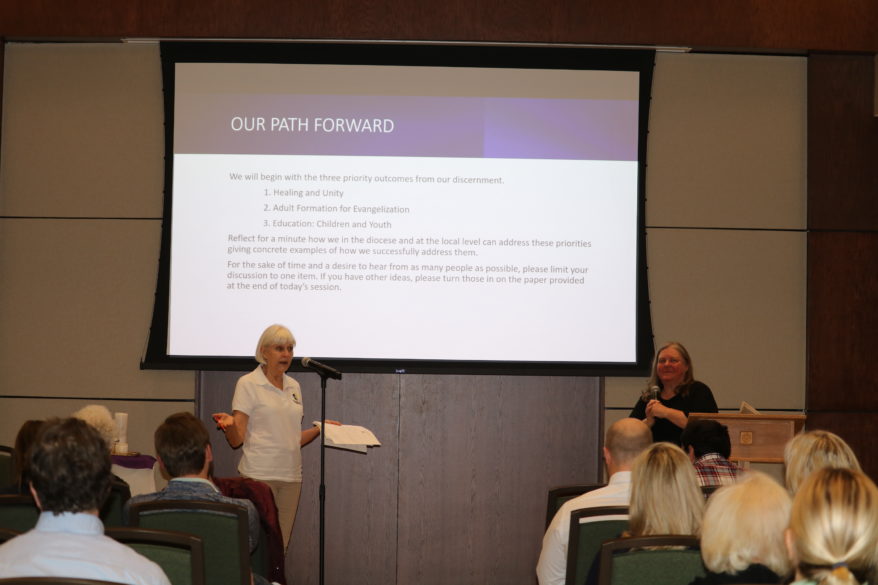
During the regional sessions, Fran Lavelle, director of faith formation for the diocese and chair of the Synod Advisory Council reviewed the things that were heard in the synod listening sessions. These included the need to create community outreach opportunities, both within the church and the larger community; a need for healing with regard to marriages, annulments, LGBTQ, Racial and ethnic divisions and the sexual abuse scandal; a need for unity; a way to be inclusive of all cultures and diverse communities; increased formation and education of lay leaders; increased faith formation opportunities for adults; the need for more evangelization efforts; ways to reach the young church; among others.
In each regional session, Lavelle went over the above results and said, “what we really want to do is focus on those areas that came up that we can address within the structure of the diocese.”
Those focus areas are healing and unity; adult formation for evangelization, and education of youth. Those who participated were asked to reflect on how the diocese and at a local church level could address the focus areas, giving concrete examples on how to address them.
Many comments around the diocese related to the faith formation of adults, with several pointing to the 2019 Pew Research student that approximately 70% of Catholics believe that the bread and wine used in Communion are only symbolic and not in the church’s teaching of transubstantiation, where the bread and wine actually become the Body and Blood of Jesus.
Fran Patterson of St. Francis Madison said she felt a call and a need that the church “needs to explain to everyone why we do what we do – why we believe it,” referring to the study. She suggested engaging programs like Father Burke Masters, “Be Formed” program. Patterson said that she and others at St. Francis have completed two 90-day series and that the series is “profound.”
“Both some of us as converts, and others as cradle Catholics, we were blown away,” said Patterson. “The richness that is now coming from us actively participating in Mass is profound and we have a desire to do more.”
Along the lines of education, many at the regional sessions focused on youth and how to get them excited about their faith and how to encourage them to be comfortable sharing their faith.
Cecilia Carlton of St. Paul Flowood said that youth at her parish were asking for more instruction on the Bible.
“They are afraid to evangelize because they don’t think they know the Bible like they should.”
Carlton suggested developing another program more Scripture specific, like Catechesis of the Good Shepherd and how to evangelize with Scripture.
The Hispanic community at St. Michael Forest, also echoed Carlton’s suggestion, asking for more faith education and classes on the scripture.
At the regional session at Immaculate Heart of Mary Greenwood, Irene Stark of St. Peter Grenada had an idea to pair youth with senior citizens to learn from each other. “We need something joyful and happy. Something our youth can look forward to doing – like more events and retreats,” said Stark.
Another theme common between English and Spanish speaking communities was the focus of unity and healing. Some present suggested having a more concentrated effort of our parishes holding joint events or sharing events with each other, as “we are one Catholic family,” said one participant.
Glara Martin of St. Francis Greenwood agreed that uniting parishes is a “great way of healing.”
“We need to be willing to learn from each other. We need to feel empowered to reach out to those that have left the church,” said Martin.
“We can’t give up! Even getting one back is enough.”
With the Spanish speaking regional sessions, many of the same concerns with unity were brought up, with regard to the diversity of cultures that exist within the diocese.
At St. Michael Forest, several present spoke about wanting to share traditions and faith within their intercultural community of “Hispanics, Vietnamese, African-Americans and Anglos.”
Deacon Carlos Solá, serving at St. James Tupelo, facilitated the four Spanish regional sessions. He said that people are looking for an experience of faith that will help them in life. “If faith doesn’t help us to live,” said Sola, “what is it for?”
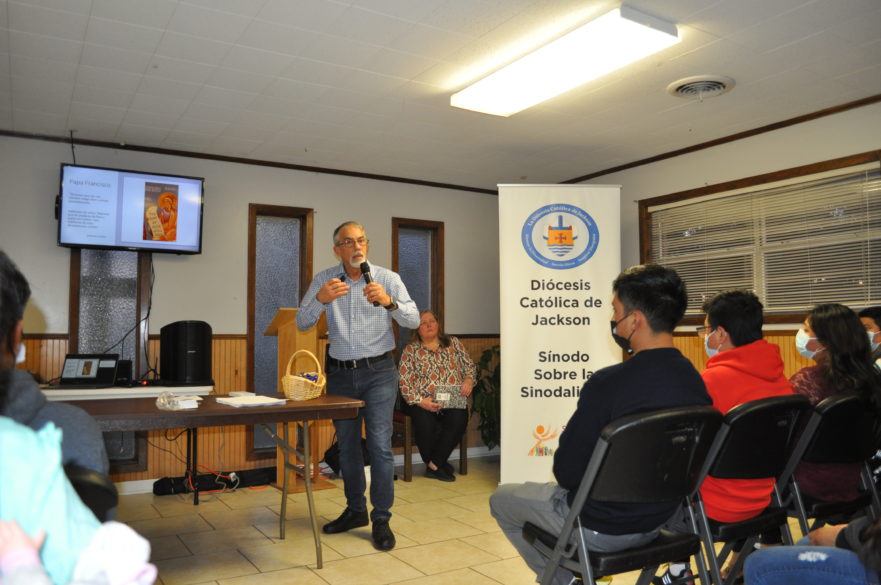
“The church must be that space where brothers and sisters must find the way to live, with intensity and joy, in the style of Jesus: the Way, Truth and Life. In that direction is where our search must go.”
Now that regional synod sessions are complete, the Synod Advisory Council and Bishop Kopacz will compile a 10-page report on what was learned during the sessions. The deadline for filing the report is June 30.
Catholic News Service (CNS) reports that in turn, the reports from all dioceses across the U.S. will be sent to regional gatherings – 16 total. Then, regional representatives will work on drafting individual synthesis reports and submitting them to the United States Conference of Catholic Bishops (USCCB).
The report then enters a “national synthesis phase” according to CNS, then being sent to the Vatican by the end of August for further refinement along with other synod reports from around the globe.
The beauty of the Diocese of Jackson’s process says Lavelle is that by coming together in these regional sessions, “we don’t have to wait for a document from Rome, we can begin to make a difference today.”
